The Top 19Superfoods to Help You Lead a Healthier Lifestyle
The Best 19 Superfoods are rich in nutrients that improve health, including antioxidants, fiber, healthy fats, vitamins, and minerals.
According to experts, consuming a diverse and well-balanced diet is preferable to concentrating on one specific food. Superfoods, on the other hand, can supplement a nutritious diet with extra nutrition.
The best superfoods, their benefits, and how to include them in your diet are all listed in this article Discover TOMO Bottle: Your Glamorous Path to Wellness and Hydration! ✨🌿 


1: Seeds
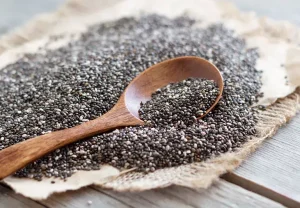
Nutritious powerhouses are seeds, such as hemp and chia seeds. Omega-3 fatty acids, fiber, minerals, and antioxidants abound in chia seeds. A 2016 study found that certain antioxidants in chia seeds may protect the liver and heart as well as have anti-cancer effects. Chia seeds can promote bone health because they are an excellent source of calcium, phosphorus, and magnesium. Try them in pesto rice and chia pilaf or this vanilla-cinnamon chia pudding.
2: Avocados
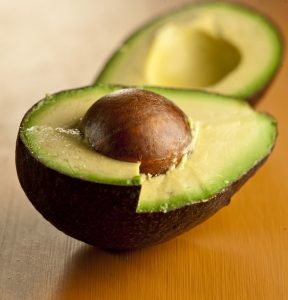
Among the healthiest foods available is this well-liked toast topper. Avocados are rich in antioxidants and other nutrients that support healthy cholesterol, bone density, skin, eyes, and other bodily functions, in addition to being a great source of heart-healthy fats. Try blending an avocado in a smoothie if you’re not a fan of avocado toast.
3: Dark Green Leafy Vegetables
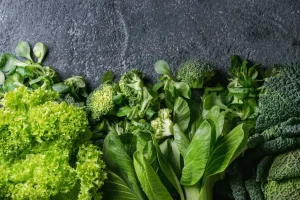
Iron, calcium, magnesium, zinc, fiber, and vitamins A, C, and K can all be found in dark, leafy greens. Additionally, they contain beneficial phytochemicals (special plant compounds) like flavonoids, carotenoids, and antioxidants. Particularly high concentrations of carotenoids found in dark leafy greens may offer protection against specific types of cancer.
Dark green vegetables, such as the following:
- Spinach
- Kale
- The greens of collards
- The Swiss chard
- Raw Arugula
- Leafy greens
- Greens with mustard seeds Shop Gaiam’s Products at GetACTV.com



4: Nuts
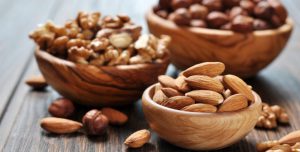
A great way to include protein, fiber, healthy fats, and other essential nutrients in your diet is by consuming nuts and nut butter. For instance, pistachios are a rich source of antioxidants, some of which have been shown in studies to support eye health and may offer protection against heart disease and cancer.
5: Mushrooms
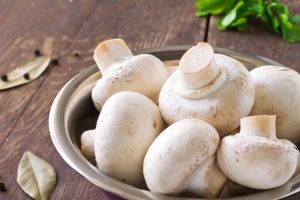
Never underestimate the nutritional value of mushrooms. They are a great source of vitamins, minerals, fiber, and phytochemicals, all of which have a variety of positive effects on health. In the words of Gensler, mushrooms are “high” in fiber, selenium, potassium, and copper,” in addition to “antioxidant compounds that help the body fight oxidative stress linked to tissue damage, chronic diseases, and aging.”
6: Cruciferous Vegetables
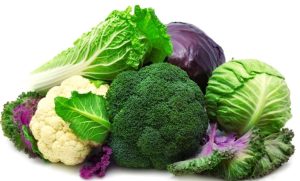
Brussels sprouts, broccoli, cauliflower, collard greens, kohlrabi, mustard greens, radishes, and turnips are among the vegetables. All the foods mentioned above are rich in fiber and packed with nutrients and phytochemicals that fight disease, such as thiocyanates, nitriles, and sulforaphane indoles. These compounds may help prevent or treat certain cancers, such as colon and lung cancer.Just Ready-To-Eat Meals 10% Off | Use code QUICKLLY10
7: Green Tea

For a good reason, green tea has been a preferred beverage for thousands of years across numerous cultures. The vibrant drink is well-known for strengthening the immune system and reducing inflammation. Studies have also shown that it may increase metabolism. The simplest way to incorporate green tea into your diet is to just sip it hot or cold, but if you want a more nutrient-dense option, you can also make green tea rice.
8: Citrus Fruits
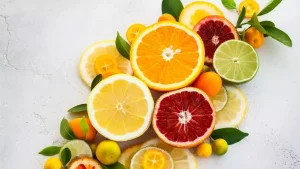
Citrus fruits are high in fiber and vitamin C. Consuming these fruits may reduce the risk of macular degeneration, an eye ailment, according to some research.
A few popular citrus fruits are:
- Lemons and oranges
- Grapefruits and Limes
9: The Pulses
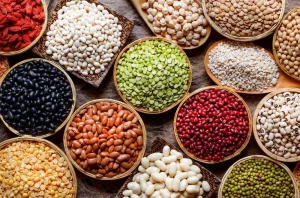
Among the various kinds of legumes that humans consume in their whole form, such as soybeans, peanuts, and fresh peas, pulses are the edible seeds that are extracted from within a legume Pulses that are high in nutrients include split (or dried) peas, beans, lentils, and chickpeas. The Dietary Guidelines for Americans classify pulses as both a vegetable and a protein because of their high nutrient content, according to Pollock Communications science writer and registered dietitian Tracy Gensler, MS, RD. Pulses contain an astounding amount of plant protein, fiber, iron, magnesium, folate, and potassium for such small packages.
10: Fish

Omega-3 fatty acids, which are abundant in fish and are known to improve heart health, are superfoods.
The fish that contain the most omega-3s are
- Mackerel
- Anchovies
- Sardines
- Salmon
- Tuna Steak
- Herring
- Trout Aquasana.com



11: The Ancient Grains
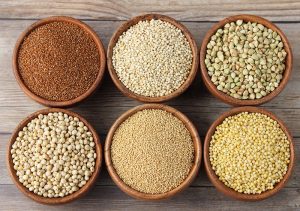
Many grains that haven’t changed in thousands of years are included in the category of “ancient grains”. These grains consist of quinoa, farro, teff, and amaranth. One of the most well-known ancient grains is quinoa, which has a high fiber content and all nine essential amino acids. This grain is a good source of iron, magnesium, and zinc, in addition to other B vitamins. This quinoa bowl with sweet potatoes and kale will help you incorporate quinoa into your weekly dinner routine.
12: Blueberries
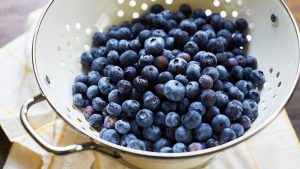
These fruits are powerful, despite their small size! Antioxidants, which shield your cells from damage caused by free radicals, are abundant in blueberries and can lower your risk of developing serious health conditions like cancer, heart disease, and other ailments. Antioxidants are also necessary for healthy skin, strong nails, and hair growth. You can incorporate blueberries into your diet by baking a delectable blueberry cobbler, topping your morning yogurt with them, or simply snacking on them straight from the refrigerator.
13:Dark Chocolate

Flavonoids high in dark chocolate can boost the immune system, prevent heart disease, and protect against some cancers. It’s crucial to understand that dark chocolate has more flavonoids than other kinds and that some may contain additional sugar
14: Olive oil
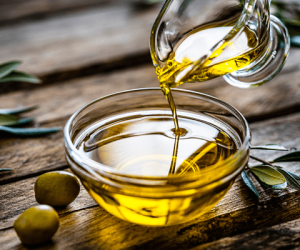
Olive oil, which is also a fantastic source of vitamin E, has antioxidants, monounsaturated fats, and polyphenols that have been demonstrated to lower inflammation and may help lower the risk of heart disease.
15:Coffee

Coffee has a lot of antioxidants in it. According to studies, drinking coffee may reduce your chances of developing type 2 diabetes, Parkinson’s disease, and some cancers. You.
Additionally, compared to people who didn’t drink coffee, those who drank 1.5 to 3.5 cups per day had a lower chance of passing away. Some caffeine-sensitive individuals, however, might not be able to drink coffee.
16: The Cinnamon
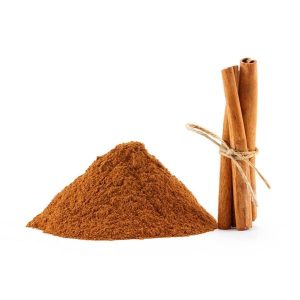
One spice that has anti-inflammatory properties and is high in antioxidants is cinnamon. Research indicates that cinnamon has the potential to decrease blood pressure, control blood sugar, and lower cholesterol. Additionally, some of the compounds in cinnamon appear to have neuroprotective properties for the brain.
17: Fermentation Foods

The top spot went to fermented foods like kimchi and yogurt, probably due to their ability to strengthen the immune system and the gut. A diet high in fermented foods boosts immune responses and diversifies the microbiome, according to Stanford School of Medicine researchers. Eat more fermented foods like kimchi cabbage cakes or homemade creamy yogurt to increase your intake of beneficial probiotics.
18: Lentils and Beans
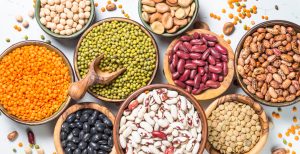
Numerous nutrients, such as potassium, iron, zinc, fiber, protein, and folate, can be found in beans and lentils. Consuming these foods may improve heart health and lower blood sugar levels, according to some evidence.
Beans and lentils come in a variety of forms.
- Kidney beans and chickpeas
- Black beans and soybeans
- Pinto beans
- Peanuts
- Navy beans
19:Garlic
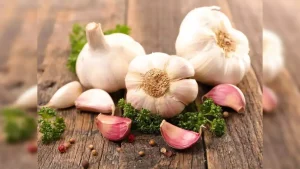
Vitamin B6, manganese, selenium, fiber, and vitamin C are all abundant in garlic. Garlic may help lower blood pressure and cholesterol, reduce the risk of cancer, and strengthen the immune system, according to some research.
Final Words
Superfoods are rich in minerals, vitamins, and antioxidants. Consuming leafy greens, Olive oil, fish, whole grains, blueberries, and other foods can help lower cholesterol, lower inflammation, and lower the risk of cancer. Superfoods are one way to make sure you are getting the essential nutrients in your diet, even though there isn’t one “miracle” food.
Frequently Asked Question
How do superfoods become super?
Superfoods are essentially just naturally occurring foods high in nutrients that you should consume to support a healthier lifestyle. Regular consumption of these foods can strengthen your immune system, enabling your body to fend off illnesses and possibly even the more severe effects of aging.
One of the superfoods that is most frequently mentioned and has been the subject of multiple scientific studies is blueberries. They have an antioxidant substance called anthocyanins that can stop cancerous cells in the colon from growing and even eradicate them. Pomegranate juice, like blueberries, has been extensively researched. According to the findings, pomegranate juice has been demonstrated to lower blood pressure and oxidative stress in healthy individuals—two important risk factors for heart disease.
What are the benefits of superfoods?
According to Czerwony, “superfoods help promote health by increasing your immune system and decreasing your chance of disease prevention or progression.” Superfoods are related to heart health in general, though each one has unique nutritional qualities. robust defenses against disease.
Why consume superfoods?
Superfoods’ high vitamin and mineral content can help your body prevent illness and maintain its health. These foods can help with weight loss, heart health, increased energy, and even aging effects when included in a well-balanced diet
What superfood is the number one?
Dark leafy greens. A great source of minerals like folate, zinc, calcium, iron, magnesium, vitamin C, and fiber is dark green leafy vegetables (DGLVs).
Which fruit is best to eat daily?
Bananas, oranges, blueberries, apples, avocados, and bananas are a few excellent options, but there are plenty more. Fruits are rich in fiber and a great source of important vitamins and minerals. Flavonoids are just one of the many antioxidants found in fruits that improve health.
Which fruit is most beneficial to skin health?
Fruits and skin care products containing vitamins A, C, and E, as well as other nutrients, such as berries, oranges, papaya, avocado, kiwi, pineapple, watermelon, and kiwi, fight oxidative stress, exfoliate the skin, enhance hydration, and encourage a more radiant, brighter complexion.










